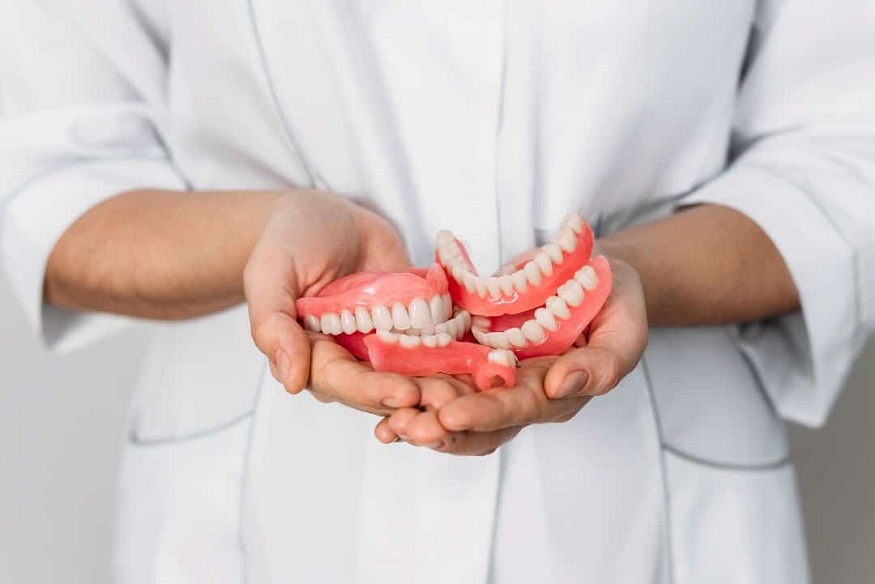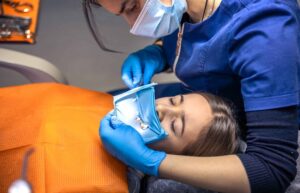How Old Do You Have to Be to Get Dentures?
3 min read
Dentures have long been a reliable solution for restoring smiles and improving oral function for those with missing teeth. Their history stretches back centuries, evolving from simple wooden or animal-tooth appliances to modern, custom-fit designs that closely mimic natural teeth. For seniors and caregivers, understanding when dentures may become necessary is an important step in protecting oral health and maintaining quality of life.
What’s the Typical Age for Getting Dentures?
Although dentures are commonly associated with older adults, there’s no specific age requirement to get them. Dentures are a solution for anyone suffering significant tooth loss—be it due to age, injury, or oral health problems. However, most individuals typically seek dentures between the ages of 40 and 80.
Signs That You Might Need Dentures
How do you know if dentures are the right path forward? Certain dental symptoms can indicate that it’s time to explore this option. Here are some common signs:
- Difficulty Eating or Chewing
Missing or damaged teeth can make it hard to chew food properly, potentially leading to digestive issues or a lack of proper nutrition.
- Persistent Pain or Discomfort
Chronic tooth pain, infection, or sensitivity can sometimes signal deeper root issues that might necessitate extraction and replacement with dentures.
- Shifting or Loose Teeth
This may indicate advanced gum disease, where supportive structures of the teeth weaken to the point where they fall out.
- Gum Irritation or Bleeding
Regular gum irritation or bleeding could suggest periodontal disease, which is a common precursor to tooth loss.
- Noticeable Gaps or Damage
Multiple missing teeth or worn-down, cracked, or severely decayed teeth could make partial or full dentures a suitable solution.
If you or a loved one are experiencing these signs, it’s a good idea to consult a dentist who can assess your situation.
What to Expect in the Denture Process
Getting dentures usually takes a few appointments. Here’s what to expect:
1. Initial Consultation
Your dentist will examine your mouth, take X-rays, and discuss your needs. They’ll decide if full dentures, partial dentures, or another option is best.
2. Extractions and Preparations (if needed)
If teeth need to be removed, you may need time to heal before fitting. Your dentist might also take impressions of your gums or remaining teeth.
3. Denture Fitting and Adjustments
Once your dentures are ready, you’ll have a fitting to ensure they’re comfortable and secure.
4. Follow-up Care
Your dentist will check if your dentures work well and show you how to care for them.
It may take a few weeks to adjust to wearing dentures, but most people get used to them quickly.
Types of Dentures Available
Dentures aren’t one-size-fits-all. Here are the most common types, with their pros and cons:
Full Dentures
Replace all teeth in your upper or lower arch; ideal for extensive tooth loss.
- Benefits: Restores dental function, improves facial structure, affordable.
- Drawbacks: May require adhesive, frequent adjustments over time.
Partial Dentures
Fill gaps for those with some missing teeth but healthy ones remaining.
- Benefits: Retains natural teeth, more stable than full dentures.
- Drawbacks: May need clips attached to nearby teeth.
Implant-Supported Dentures
Anchored by implants for superior stability and durability.
- Benefits: Secure fit, long-lasting, prevents bone loss.
- Drawbacks: Higher cost, requires surgery.
Temporary Dentures
A short-term solution while waiting for permanent dentures.
- Benefits: Immediate replacement after extraction, short-term functionality.
- Drawbacks: Less stable, not for long-term use.
Talk to your dentist to find the best option for your needs.
Prioritise Your Dental Health—It’s Never Too Late
Dentures gold coast offer a simple and effective solution for restoring oral health and maintaining confidence at any age. Whether you’re a senior experiencing tooth loss or a caregiver exploring options for a loved one, understanding the process and available options can help you make an informed decision.
Still have questions? Book a consultation with a trusted dentist to evaluate your oral health and explore whether dentures are the right fit for you.





